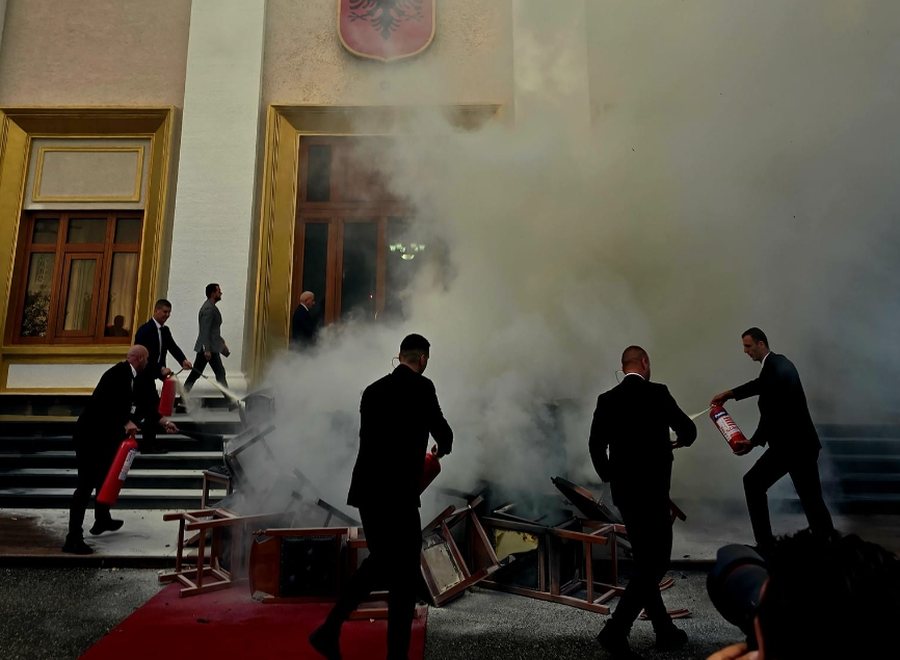Justice Minister warns opposition leaders of legal consequences of civil unrest

Photo: Opposition members set fire to chairs in the courtyard of Albania’s Parliament
Albania’s Justice Minister, Ulsi Manja, issued a stern warning today, stating that anyone engaging in so-called acts of civil unrest, such as blocking roads, ports and airports, or damaging public property, will face prosecution. His remarks come in response to the opposition’s call for violent protest following the imprisonment of Democratic Party MP Ervin Salianji for false reporting.
Why is it important: Manja’s comments target opposition leader Sali Berisha’s calls for civil unrest, which the Government views as a cover for personal and familial legal issues. This clash could further destabilize the political climate as Albania enters a critical phase in its negotiations with the European Union.
Context:
- Opposition Protests: The opposition called for protests after Salianji’s sentencing for his false reporting, for his role in the fabrication of a file to attack the Minister of Interior in 2018. Manja described these actions as “violent and unlawful.”
- Berisha’s Calls: Sali Berisha, from house arrest where he is awaiting trial for corruption, has been urging his supporters to engage in civil unrest. Manja criticized Berisha’s actions, saying his approach represents a personal vendetta against the judiciary, which Berisha accuses of being influenced by Prime Minister Edi Rama.
Minister Manja’s Remarks:
- Comparison to Gandhi: Manja mocked Berisha’s call for civil unrest and the comparison to Ghandi saying, “Gandhi never used force or set fire to institutions.” He emphasized that what Berisha is calling for is far from peaceful.
- Criminal Charges: Manja reminded the public that Salianji was convicted for false reporting and for his role in fabricating audio material to attack the then Minister of Interior, not as a political prisoner.
- Political Motive: The Justice Minister insisted that these protests are a result of Berisha’s personal legal troubles, dismissing them as politically motivated rather than genuine civil unrest. Berisha is currently in house arrest awaiting trial for corruption, alongside his son-in-law.
Diplomatic Concerns:
- International Reaction: The violent protests and calls for civil unrest have drawn criticism from international observers. EU Ambassador Silvio Gonzato expressed disappointment, stressing that political grievances should be addressed through dialogue, not violence. The U.S. Embassy echoed these sentiments, calling for restraint and constructive discussion to advance Albania’s EU membership talks.
What’s Next: As Albania continues negotiations with the European Union this month, the political unrest triggered by these protests could harm the country’s progress. The government has made it clear that any further disruptions will be met with legal consequences.


